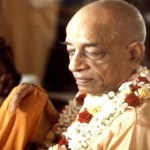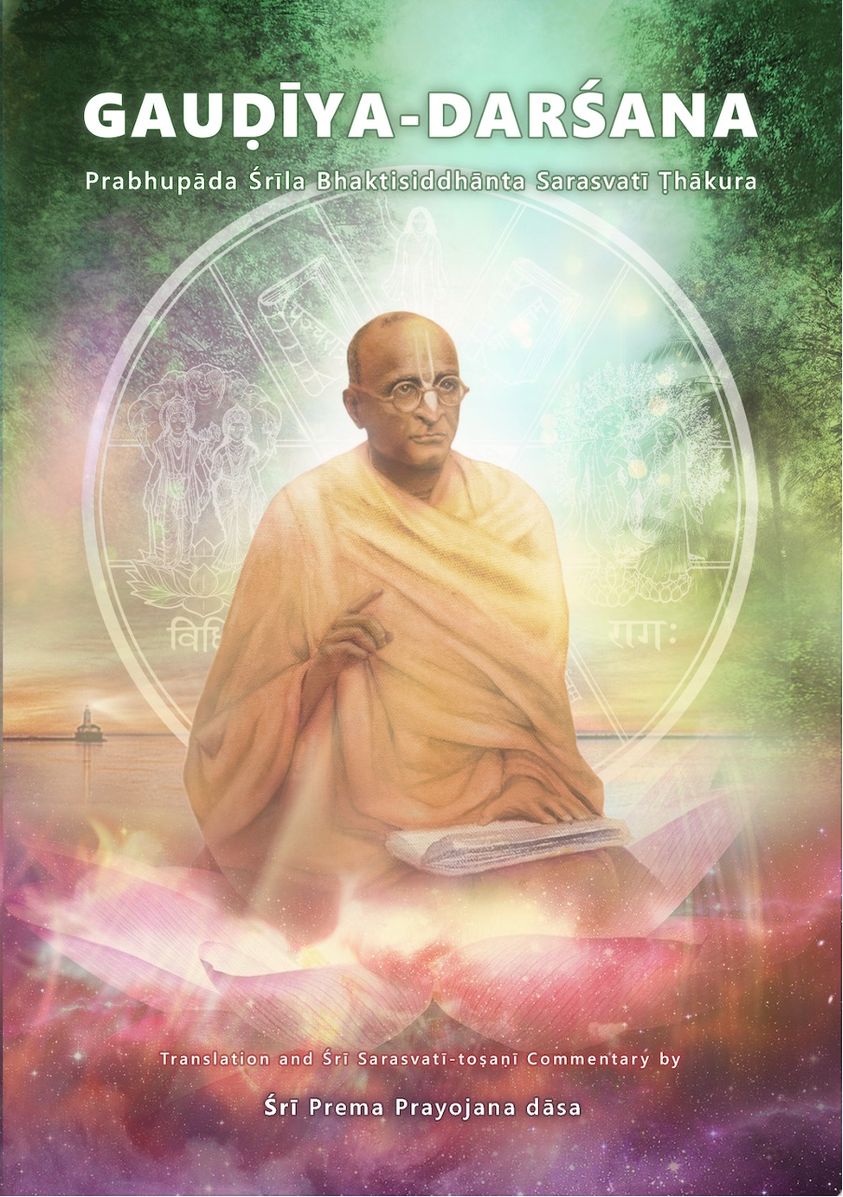Controlling The Mind
INSPIRATIONAL QUOTATIONS
This illumination, comes from Srila Bhaktivedanta Swami Prabhupada Bhagavad Gita Chapter 6 Texts 34-36

Srila Bhaktivedanta Swami Prabhupada
TRANSLATION TEXT 34
For the mind is restless, turbulent, obstinate and very strong, O Kṛṣṇa, and to subdue it is, it seems to me, more difficult than controlling the wind
PURPORT
The mind is so strong and obstinate that it sometimes overcomes the intelligence, although mind is supposed to be subservient to the intelligence. For a man in the practical world who has to fight so many opposing elements, it is certainly very difficult to control the mind. Artificially, one may establish a mental equilibrium toward both friend and enemy, but ultimately no worldly man can do so, for this is more difficult than controlling the raging wind. In the Vedic literatures it is said: ātmānaṁ rathinaṁ viddhi śarīraṁ ratham eva cabuddhintu sārathiṁ viddhi manaḥ pragraham eva caindriyāṇi hayānāhur viṣayāṁs teṣu gocarānātmendriya-mano-yukto bhoktety āhur manīṣiṇaḥ.

The uncontrolled mind
"The individual is the passenger in the car of the material body, and intelligence is the driver. Mind is the driving instrument, and the senses are the horses. The self is thus the enjoyer or sufferer in the association of the mind and senses. So it is understood by great thinkers." Intelligence is supposed to direct the mind, but the mind is so strong and obstinate that it often overcomes even one's own intelligence.
![sp with cadar on head[1]](http://www.harekrishnasociety.com/wp-content/uploads/2012/05/sp-with-cadar-on-head1-150x150.jpg)
Chant Hare Krishna And Be Happy
Such a strong mind is supposed to be controlled by the practice of yoga, but such practice is never practical for a worldly person like Arjuna. And what can we say of modern man? The simile used here is appropriate: one cannot capture the blowing wind. And it is even more difficult to capture the turbulent mind. The easiest way to control the mind, as suggested by Lord Caitanya, is chanting "Hare Kṛṣṇa Mantra" the great mantra for deliverance, in all humility. The method prescribed is sa vai manaḥ kṛṣṇa-padāravindayoḥ: one must engage one's mind fully in Kṛṣṇa. Only then will there remain no other engagements to agitate the mind.
![lord+caitanya+beads[1]](http://www.harekrishnasociety.com/wp-content/uploads/2012/05/lord+caitanya+beads1-150x150.jpg)
lord Caitanya
TRANSLATION TEXT 35
The Blessed Lord said: O mighty-armed son of Kuntī, it is undoubtedly very difficult to curb the restless mind, but it is possible by constant practice and by detachment.
PURPORT
The difficulty of controlling the obstinate mind, as expressed by Arjuna, is accepted by the Personality of Godhead. But at the same time He suggests that by practice and detachment it is possible. What is that practice? In the present age no one can observe strict rules and regulations, such as placing oneself in a sacred place, focusing the mind on the Supersoul, restraining the senses and mind, observing celibacy, remaining alone, etc. By the practice of Kṛṣṇa consciousness, however, one engages in nine types of devotional service to the Lord. The first and foremost of such devotional engagements is hearing about Kṛṣṇa. This is a very powerful transcendental method for purging the mind of all misgivings. The more one hears about Kṛṣṇa, the more one becomes enlightened and detached from everything that draws the mind away from Kṛṣṇa. By detaching the mind from activities not devoted to the Lord, one can very easily learn vairāgya.
Hear and chant Krishnas Holy Names![0[3]](http://www.harekrishnasociety.com/wp-content/uploads/2012/05/03-150x150.jpg)
Vairāgya means detachment from matter and engagement of the mind in spirit. Impersonal spiritual detachment is more difficult than attaching the mind to the activities of Kṛṣṇa. This is practical because by hearing about Kṛṣṇa one becomes automatically attached to the Supreme Spirit. This attachment is called pareśānubhūti spiritual satisfaction. It is just like the feeling of satisfaction a hungry man has for every morsel of food he eats. Similarly, by discharge of devotional service, one feels transcendental satisfaction as the mind becomes detached from material objectives. It is something like curing a disease by expert treatment and appropriate diet. Hearing of the transcendental activities of Lord Kṛṣṇa is therefore expert treatment for the mad mind, and eating the foodstuff offered to Kṛṣṇa is the appropriate diet for the suffering patient. This treatment is the process of Kṛṣṇa consciousness
TRANSLATION TEXT 36
For one whose mind is unbridled, self-realization is difficult work. But he whose mind is controlled and who strives by right means is assured of success. That is My opinion.

PURPORT
The Supreme Personality of Godhead declares that one who does not accept the proper treatment to detach the mind from material engagement can hardly achieve success in self-realization. Trying to practice yoga while engaging the mind in material enjoyment is like trying to ignite a fire while pouring water on it. Similarly, yoga practice without mental control is a waste of time. Such a show of yoga practice may be materially lucrative, but it is useless as far as spiritual realization is concerned. Therefore, the mind must be controlled by engaging it constantly in the transcendental loving service of the Lord. Unless one is engaged in Kṛṣṇa consciousness, he cannot steadily control the mind. A Kṛṣṇa conscious person easily achieves the result of yoga practice without separate endeavor, but a yoga practitioner cannot achieve success without becoming Kṛṣṇa conscious










